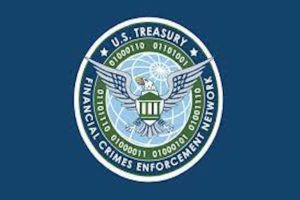
The head of the U. S’s Financial Crimes Enforcement Network (FinCEN) announced during a congressional hearing that the Network isn’t adopting a “gotcha” approach to enforcing compliance with the new regulations on reporting beneficial ownership information (BOI) by companies.
Since implementing the Anti-Money Laundering Act of 2020, FinCEN’s highest priority has been achieving successful implementation of the beneficial ownership reporting requirements. These requirements obligate a company to disclose all individuals who formed the company. This includes any individuals who have a lot of say or control over the company through another unaffiliated company.
Companies are required to disclose the name, date of birth, and home address of every beneficial owner, along with submitting identification like a passport or driver’s license. However, FinCEN exempts certain “large” companies from the BOI reporting obligations, defining them as those with over 20 full-time employees in the U.S. and minimum gross receipts or sales of $5 million, among other criteria.
The purpose of this requirement is to filter out shell companies that are used primarily for money-laundering. These shell corporations usually consist of smaller companies with a lesser amount of financial resources. As a result of the fact that these companies are not usually current with recent regulations, these reporting requirements have received a significant amount of criticism from Congress. During the congressional hearing, Financial Services Chairman Patrick McHenry referenced a survey conducted by the National Federation of Independent Business, revealing that 90% of small businesses are unaware of their newly imposed reporting obligations.
Andre Gacki, the head of FinCEN, addressed these criticisms in the recent congressional hearing. “I want to clearly state that FinCEN has no interest in hitting small businesses with excessive fines or penalties. The CTA penalizes willful violations of the law, and we are not seeking to take “gotcha” enforcement actions,” Gacki said. “Looking ahead, we will continue our efforts to promote compliance with the reporting requirements and ensure broad awareness of the safe, secure, and easy-to-use filing system.”
FinCEN’s Outreach Efforts
FinCEN has dedicated much time and effort into actively engaging in outreach to smaller companies in order to notify them of the BIO reporting requirements. “We have held outreach events with a wide range of small business advocacy associations, corporate service providers, third party trade associations, industry trade associations, and good governance organizations,” Gacki said her congressional hearing statement. “We have also opened channels to directly engage with small businesses and other users actively filing reports.”
FinCEN’s website also includes a direct link to their Contact Center, so users can submit their questions about filing or let the agency know of any issues they encounter with submitting their report. It is also using a ChatBot to provide businesses with an interactive tool to quickly answer any questions they may have.
Although small companies are inherently not aware of the current BOI reporting requirements, FinCEN is trying its best to notify each and every company of such rules in order to truly filter out those that have only been formed for the purpose of money-laundering and other financial crimes.
As the head of FinCEN said to the House of Representatives in the recent congressional hearing, “We know that the vast majority of the small businesses that will be impacted by this reporting requirement are law-abiding businesses that want to do the right thing, and we also know that many of them may not be familiar with FinCEN… This is why outreach has been and will continue to be a primary focus of our efforts.”
FinCEN now requires companies to complete their BOI requirements by January 1, 2025. For those who violate the requirements, they will face “civil fines of up to $500 per day that the violation continues, criminal fines of up to $10,000, and up to two years of imprisonment “according to FinCEN. ![]()
Jacob Horowitz is a contributing editor at Compliance Chief 360°

